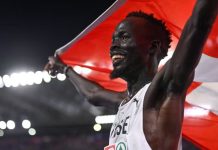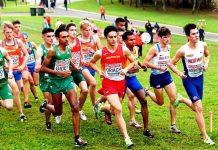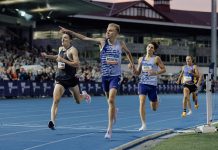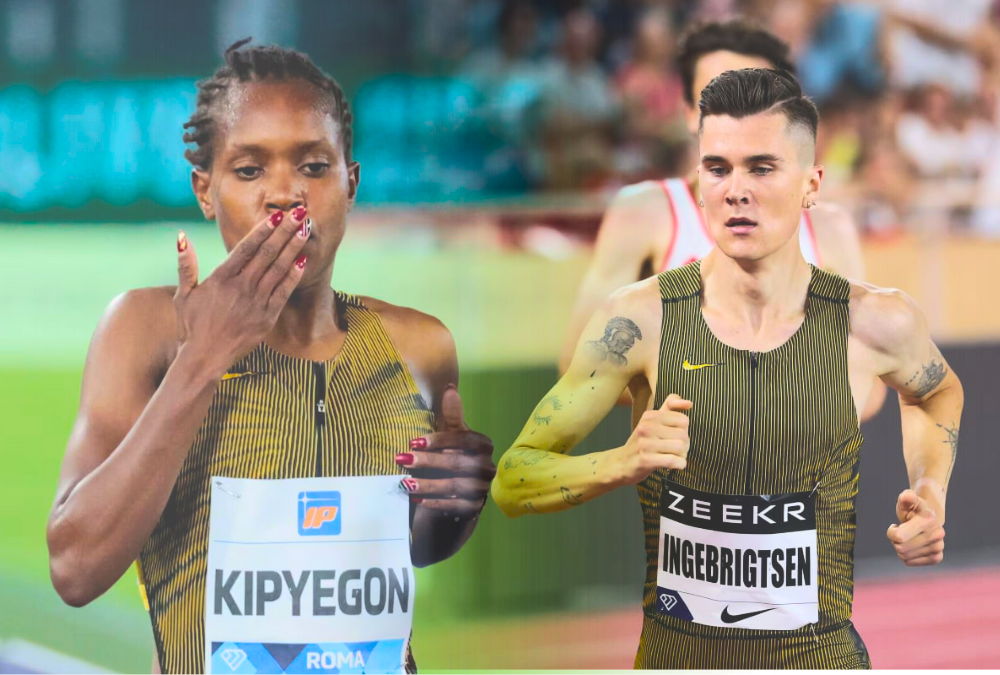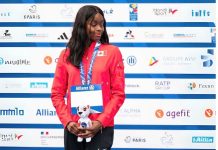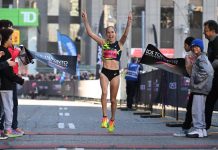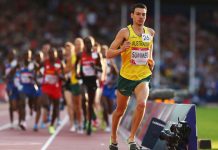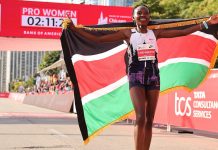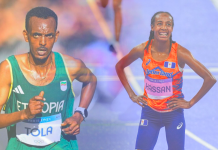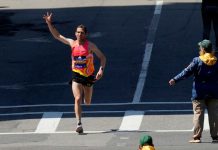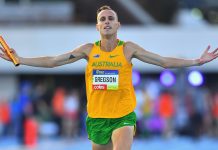As Faith Kipyegon’s accelerated away from her opponents to victory in the women’s Diamond League 1500 metres the livestream commentary team fell to comparing her with Jakob Ingebrigtsen.
Kipyegon increased her pace smoothly and continuously as she left the rest fighting for second place, just as Ingebrigtsen had in the men’s race on the first evening of the Brussels DL final.

The comparison was well-made. But it did raise the further question of which of these two champions is the epitome of the current generation of middle-distance runners. We think of both predominantly as 1500 specialists, but each has successfully gone up in distance. Ingebrigtsen, indeed, has had greater championship success at 5000 – and Olympic gold medal and two world championship victories – than 1500, where his Tokyo Olympic gold medal has been followed by two silvers and a fourth place in subsequent global championships.
Kipyegon has also struck gold in the 5000, winning the world championships final in Budapest last year after setting a world record earlier in the year. Where Ingebrigtsen’s championship 1500 record is spotty, hers is pretty well spotless – three Olympic victories on the trot and four world titles broken only by a second place on her return after the birth of her first child.
Kipyegon, too, has annexed world records – the 1500, the mile and the 5000 in a 50-day spree last year, followed by a second record at 1500 this year. Ingebrigtsen has missed the records – barely – at 1500 and the mile, but his 3:26.73 for the former has him fourth on the all-time list behind Hicham El Guerrouj’s 3:26.00 and his 3:43.76 mile sees him third to El G’s 3:43.13. And he has set world records at 2000 metres (4:43.13), 3000 (7:17.55) and two miles (7:54.10) in the past two seasons.
In the broader context, then, who goes first in the comparison between the pair. Do we compare Kipyegon to Ingebrigtsen, or Ingebrigtsen to Kipyegon.
First thing to acknowledge is that both are wonderful athletes and we are privileged to see them at their best in the same era. Kipyegon turned 30 in January this year, Ingebrigtsen has just celebrated his twenty-fourth birthday, so she is perhaps in the second half of her career while he may have even better years ahead of him.
Both found success at a young age. Ingebrigtsen followed older brothers Henrik and Filip into athletics but has outstripped both of them. He has been taking on older runners since the age of 17 and, mostly, beating them.
Kipyegon, too, was a precocious talent. She won gold medals on the track at world youth (U18) and world U20 championships. She was fourth, first and first again in successive junior races at the world cross-country championships. She won her first senior track gold medal in the 1500 at the London 2017 world championships. Kipyegon was 23 by then: at the same age Ingebrigtsen was already an Olympic champion at 1500 and a two-time world champion at 5000.
But if early success favours the Norwegian athlete, Kipyegon has the edge at global championships, an edge that is even sharper in the 1500. The post-maternity blip at Doha 2019 aside, she has won every global title since 2016 – the Rio, Tokyo and Paris Olympics, the London, Eugene and Budapest world championships.

Kipyegon is the only athlete to have won three consecutive Olympic titles at 1500 metres. In contrast, three of Ingebrigtsen’s rare defeats at the distance have come in consecutive global championship races – the 1500 finals in Eugene, Budapest and Paris (though he has won the 5000 on each occasion).
And while Kipyegon has won her 1500s in contrasting manner – a blistering 55.75 last lap in Budapest; a long run for home in other races – Ingebrigtsen has lost each time using similar tactics. If he cannot run his opponents off their collective feet, it seems he has no plan B. It takes a memorable performance to beat him but three different men – Jake Wightman, Josh Kerr and Cole Hocker – have produced such a performance in successive finals.
To paraphrase Oscar Wilde’s Lady Bracknell, to lose one race in such fashion may be regarded as a misfortune, to lose two looks like carelessness. A third such loss starts to look like tactical inflexibility. Still, the slowest winning time in any of the three races was Kerr’s 3:29.38 in Budapest, so Ingebrigtsen entertains even when he does not win.
In post-Paris racing Ingebrigtsen won in Lausanne in 3:27 then produced his fabulous 7:17.55 for 3000 metres, finally eclipsing Daniel Komen’s 7:20.67 world record set back in 1996. He lost to Yared Nuguse in Zurich before bouncing back in typical fashion to win the DL final from Timothy Cheruiyot, 3:30.37 to 3:30.93.

From there, in perhaps his most audacious move yet, Ingebrigtsen made his half-marathon debut in Copenhagen less than 36 hours later. Not surprisingly, perhaps, he didn’t win, but his 63:13 surely a world record for a half-marathon with several – I didn’t count them and, probably, neither did he) – walking breaks.
Kipyegon or Ingebrigtsen, Ingebrigtsen or Kipyegon as the paragon of track middle-distance running. It’s not that important really. It’s just a pleasure to have them both around at the same time.



